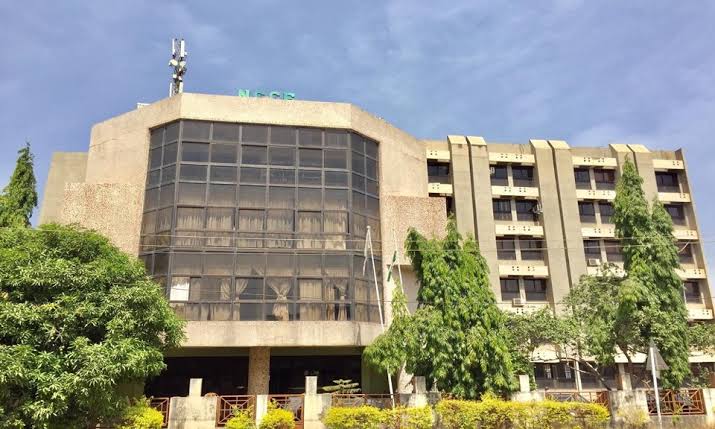On 25 August 2025, the National Commission for Colleges of Education (NCCE) announced a landmark move in its mission to uphold Nigeria’s educational standards. In its latest performance report, the Commission revealed that 22 Colleges of Education, operating without accreditation, have been identified and shut down in a sweeping nationwide enforcement operation.
Table of Contents

A Nationwide Crackdown to Safeguard Educational Integrity
The NCCE’s decisive steps are aimed at curbing the proliferation of unlicensed institutions masquerading as delivery points for teacher education. These so-called “certificate mills” have been producing qualifications that hold no recognised value—and thereby undermining the credibility of the entire education system. During the enforcement sweep, the Commission not only sealed the rogue campuses but also conducted personnel audits and financial monitoring across all 21 federal Colleges of Education, according to the report.
This dual-track strategy—combining enforcement with internal institutional reform—is emblematic of the current Administration’s broader objective: restoring integrity and accountability in teacher training institutions throughout the country.
High-Level Backing: Presidential Directive and Sector Alignment
President Bola Tinubu’s Administration has reinforced the importance of regulatory synergy in this crackdown. At the 14th convocation of the National Open University of Nigeria (NOUN), the President—represented by Rakiya Ilyasu, Director of University Education at the Federal Ministry of Education—warned against illegal institutions and certificate forgery, emphasising the urgent need to preserve academic standards.
Tinubu’s directive demands coordinated action from all regulatory bodies—including the NUC and NBTE—as well as the NCCE, thereby creating a unified front against the menace of fake schools and substandard qualifications. This alignment signals that Nigeria’s education governance is entering a more disciplined, standards-driven era.

What This Means for Stakeholders: Students, Parents, and Beyond
For Prospective and Current Students:
This crackdown sends a clear message: Attending accredited institutions is essential. Certificates from illegal colleges will no longer pave the way to NYSC mobilisation, employment, or further study. Prospective students must remain vigilant and verify accreditation through official NCCE sources.
For Parents and Guardians:
Due diligence is crucial when selecting institutions. Checking with the NCCE can help you confirm whether a college is recognised—helping you avoid potential financial loss and academic heartache.
For Legitimate Institutions:
The NCCE’s parallel move to audit federal Colleges of Education should be seen not as punitive, but as a commitment to transparency and quality assurance. Federal institutions are encouraged to embrace these audits as opportunities to align with best practices.
For the Education Sector and the Nation:
By eliminating bogus institutions, the NCCE is strengthening the entire teaching profession pipeline. Standardised teacher education enhances classroom outcomes, benefits learners, and boosts public trust in national qualifications.
Looking Forward: Reform, Resilience, and Renewed Trust
The NCCE’s recent action is not a one-off—it reflects part of a sustained campaign to cleanse the teacher education sub-sector of illegitimate operations. Previously, the same Commission reported shutting down 160 illegal colleges and study centres during a broader clean-up exercise.
The current initiative—targeting 22 schools—builds upon that foundation and is complemented by ongoing reform efforts in legitimate institutions.
Continuing Challenges:
- Re-validation after enforcement — ensuring that shut institutions do not resume operations covertly.
- Enhancing accreditation processes — making it easier for bona fide colleges to meet standards, while keeping the bar high.
- Raising public awareness — helping Nigerians distinguish between genuine institutions and imposters.
The NCCE must sustain its monitoring, enforcement, and public communication. Meanwhile, prospective students and stakeholders should lean on official accreditation platforms to inform their decisions.

Conclusion
The Commission’s firm stance on shutting down 22 illegal Colleges of Education sends a powerful message: Nigeria will not tolerate institutions that compromise the integrity of its education system. Paired with internal reforms in federally recognised colleges, and strong regulatory involvement from the Presidency, this effort marks a pivotal step in rebuilding trust in teacher education.
By eliminating unaccredited colleges, enhancing accountability, and advancing transparency, the NCCE is actively restoring the genuine value of Nigeria’s educational credentials—for teachers, institutions, and the nation at large.
Join Our Social Media Channels:
WhatsApp: NaijaEyes
Facebook: NaijaEyes
Twitter: NaijaEyes
Instagram: NaijaEyes
TikTok: NaijaEyes
READ THE LATEST EDUCATION NEWS




